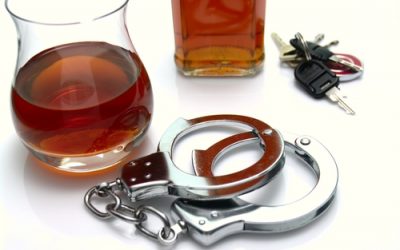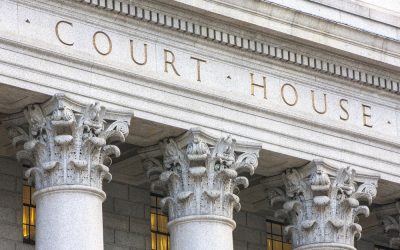
Yes, you can get a DUI on private property in the state of California. Driving under the influence of drugs or alcohol is illegal in California, whether or not the motorist is on public or private property.
DUI laws in the state have evolved over time to prohibit drivers from operating a motor vehicle while impaired in any location, including public roads, private driveways, gated communities, private roads, and parking lots. If you’re facing charges, you can get help from a Los Angeles DUI lawyer.
What is Considered Private Property in California?
The subject of private or public property often arises during DUI cases. Private property is owned by an individual, organization, or other non-governmental entity. Some examples where a person may be charged with a private property DUI include:
- Parking garages
- Private driveways
- Off-roading on private land or with an off-road vehicle
- Restaurants and shopping parking lots
- Business parking lots
- Apartment building complexes
- Private golf course areas
- Private neighborhoods
- Gated communities
Public property consists of land owned by the government or collectively by the population of the state. In the past, the California Vehicle Code made it illegal to drive while intoxicated on highways and areas that were open to the public.
However, in 1982, the law was amended to apply to any location, including public places, shopping malls, and land posted as not being open to the public.
How Does California Define a DUI (Driving Under the Influence)?
Driving under the influence (DUI) is a serious crime under California law. The simple consumption of an alcoholic beverage and driving is not a crime in itself.
However, operating a vehicle with a blood alcohol concentration (BAC) or blood alcohol content of 0.08 or more is illegal. A person’s blood–alcohol level is dependent on a number of factors, including:
- The weight of the individual
- Whether or not the person took any medications
- How much and when a person last ate
- How much water they have consumed while drinking
- The number of alcoholic drinks or intoxicating liquor consumed
- How quickly any alcoholic beverages were consumed
- The gender of the person assigned at birth
In addition, a person can be charged with drunk driving if they are found to be under the influence of drugs. State law and the California Penal Code prohibit impaired driving through the use of illegal drugs, prescribed medications, or marijuana.
Illegal drugs can consist of substances like heroin or cocaine, while prescribed medications may include over-the-counter sleep aids.
How Do California DUI Laws Apply to Private Property?
The issue of private property and drunk driving laws can be complicated.
The practical interpretation of state law allows law enforcement to enforce DUI laws on lands and roads other than a highway. In fact, a person could be off-roading, driving around a private parking lot, or even operating an electric golf cart on community property.
Private Property Criteria
The private land or road must meet some criteria. For example, private land must be accessible to the public, such as business parking lots or apartment building lots.
In addition, the land or road must not be within the owner’s immediate control without the property owner’s consent.
Places You Could Be Charged With a DUI
Motorists may be charged and arrested for a DUI after a traffic stop outside a nightclub, restaurant, store, or house party, even on private property if there is access to the public. Police jurisdiction may also extend to front yard parties, shopping malls, or a public residence.
If you have been arrested for driving under the influence on private property recently, a DUI defense attorney or criminal defense attorney in Los Angeles may be able to help. Contact a Los Angeles DUI attorney to discuss the details of your case and possible defense strategy.
Are the DUI Penalties the Same if You are Arrested on Private Property?
The location of DUI arrests has no effect on the criminal penalties associated with the crime. Driving under the influence is a serious violation in California, whether or not it is the first offense.
A person charged with a DUI is subject to strict punishment under California DMV rules, criminal court procedures, and drunk driving laws.
California DUI Penalty Overview
California DUI penalties can vary widely. The legal ramifications of driving under the influence of drugs or alcohol depend on the circumstances of the events that led to an arrest, whether or not a chemical test, blood test, or field sobriety tests were refused, and the age of the offender.
Some DUI penalties consist of the following:
- The suspension of a driver’s license (driver’s license suspension)
- Higher insurance rates, as well as fines and fees
- Lengthy DUI education programs or DUI school to win back a suspended license
- Community service or civil liability in some cases
- Time in prison
- Hefty fines and court costs
- Installation of an ignition interlock device
In addition, an offender may be required to install an ignition interlock device. These devices are designed to prevent a car from starting if the driver has been drinking.
It is a small breathalyzer that is installed in a car, forcing the motorist to blow into the device every time they go to drive.
DUI Penalties for a First-Time Offense
If a driver is charged with their first DUI, the penalties may be relatively small compared to repeat offenders. A DUI charge typically generates an automatic driver’s license suspension upon arrest. For a first offense, a motorist may face the following consequences:
- A license suspension of 4 months or longer
- 3 to 5 years on probation
- 3 months or more of required attendance at DUI school or DUI education programs
- Up to 6 months in prison
- Fines that can range from $3,600 to $15,649
Despite the relatively minor penalties, having a DUI conviction on record can be very damaging.
Individuals may be prohibited from applying to certain types of employment, may face public intoxication law consequences, or may be subject to property damage claims from Vehicular Activity. Vehicle insurance rates often skyrocket after a DUI conviction.
DUI Penalties for a Second Offense
When a driver commits a second DUI offense, the penalties increase drastically. For example, a second DUI offense requires the mandatory installation of an ignition interlock device on the offender’s vehicle. In addition, drivers may face the following:
- Fines and fees up to $4,000
- 3 to 5 years on DUI probation
- Time in prison up to 1 year
- License suspension of up to 2 years
- DUI school, typically 18 months to 30 months
First and second DUI offenses are charged as misdemeanors in California. If a driver is convicted of their third, fourth, or fifth DUI offense, it is considered a felony under California law. A felony DUI will result in strict criminal penalties and significantly impact an individual’s future prospects.
Third and Fourth-Offense DUI Penalties
Most DUI charges require the skills of a DUI attorney. However, it may require the experience of a DUI defense attorney or criminal defense attorney to mitigate the damage from a felony DUI arrest.
Third and fourth offense DUI penalties include:
- License suspension of 3 to 4 years or permanent driver’s license suspension
- A state prison sentence of up to 16 months
- Fines and fees up to $18,000
- The mandatory installation of an ignition interlock device
- Status as a convicted felon
- 3 to 5 years probation
- 30 months in DUI school
Call Us 24/7 to Get Connected With a Los Angeles DUI Lawyer
So, can you get a DUI on private property? The answer is yes, but if you’re charged, you’re not on your own. A DUI attorney in Los Angeles has experience protecting the rights of those suspected of driving under the influence.
Our lawyers understand how California DUI laws, California Penal Code, and California Vehicle Code interact in criminal court and can provide a defense strategy, whether the case involves a traffic stop, chemical test refusal, drunk in public charges, or other traffic violations.
Schedule a free case evaluation with Los Angeles DUI Lawyer today to discuss the best defense strategies to mitigate the damage to your freedom, finances, and reputation. For more information, visit our FAQ page.








